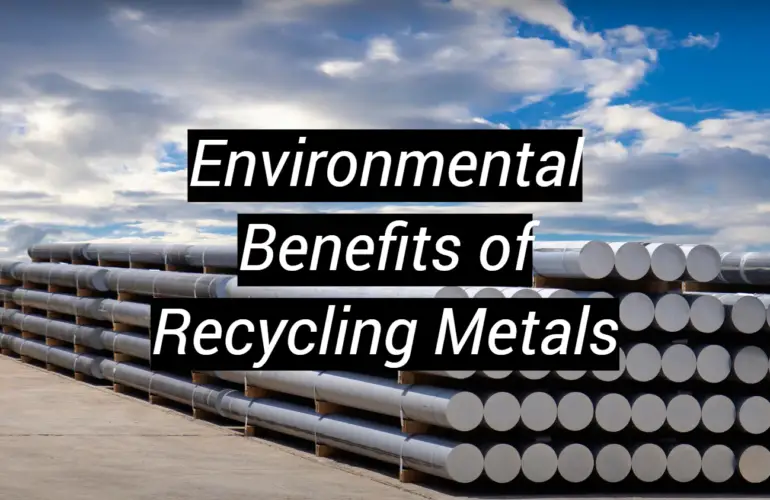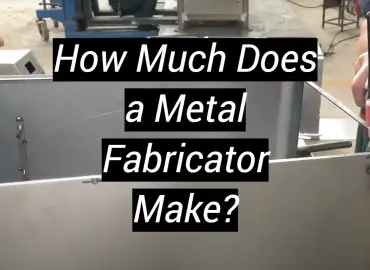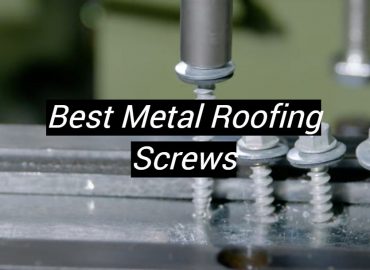Recycling metals has numerous positive environmental impacts. From reducing air and water pollution to conserving energy and resources, recycling metals can help us create a more sustainable future. Not only does it keep harmful compounds out of our environment, but it also helps reduce the amount of waste in landfills. By recycling metals responsibly, we can create a cleaner, healthier world for current and future generations.
Definition of Recycling Metals
Recycling metals involves taking existing metal products and reprocessing them into new ones.
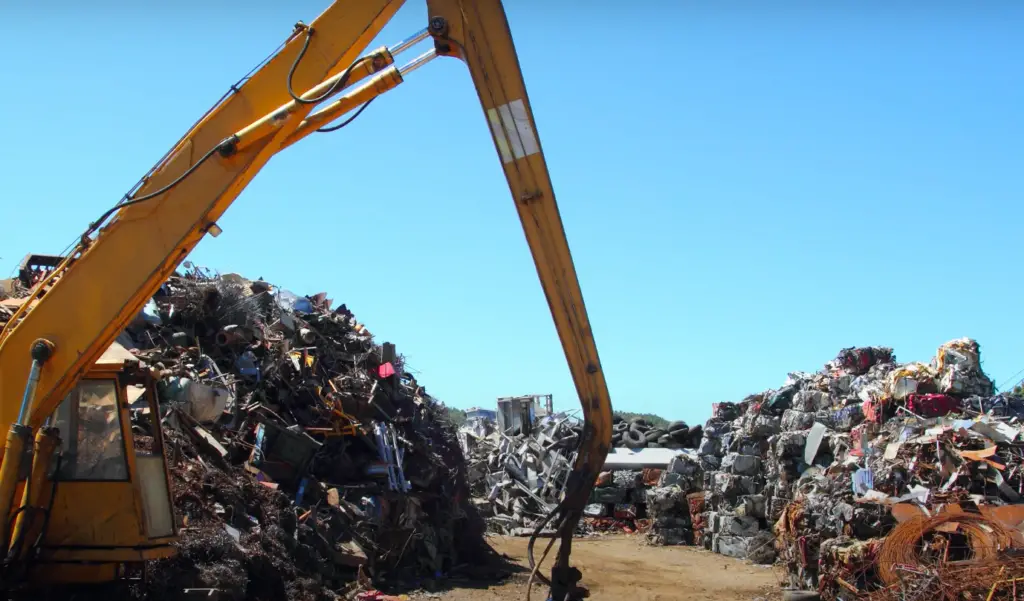
This process can be done with a variety of materials, including steel, aluminum, copper, brass, and bronze.
Benefits of Recycling Metals
There are many advantages to recycling metals, including [1]:
- Preserve Natural Resources: By recycling metals, we can preserve our natural resources and limit the amount of new material needed for production. It helps us conserve energy, water, and raw materials like ore which can take millions of years to form;
- Reduces Waste: Recycling metal reduces the amount of waste going into landfills, reducing the strain on our environment. It also helps prevent materials from ending up in our oceans or waterways and contributing to ocean pollution;
- Generates Revenue: The sale of recycled metals generates revenue that can fund community programs and other initiatives that benefit everyone;
- Reduces Pollution: When metals are recycled, they don’t have to be mined which reduces air pollution from mining operations. The process of melting down metals to make new products also creates less pollution than the production of new materials;
- Reusing Resources Saves Energy: By reusing metal resources, we can conserve energy that would otherwise be used to produce new products from raw materials. It helps us reduce our carbon footprint and contribute to a more sustainable planet;
- Helps the Economy: Recycling metals provides jobs for people in the recycling industry while providing a cost-effective solution for companies that need raw material sources for their production processes;
- Reduces Mining Emissions and Conserves Natural Resources: Metal mining produces large amounts of pollutants such as sulfur dioxide, nitrogen oxide, and particulate matter which are damaging to human health and the environment. By recycling metals, we can reduce the need to mine these materials and conserve our natural resources;
- Slows Landfill Growth: When metals are recycled instead of ending up in landfills, it helps slow the growth of landfill sites which can cause environmental problems like water and air pollution;
- Help the Planet by Giving Metal New Life: Recycling metal products gives them a new purpose rather than leaving them to sit in landfills or polluting oceans and waterways. It helps us create a healthier planet for current and future generations;
- It Reduces Greenhouse Gas Emissions: Recycling metals reduces greenhouse gas emissions associated with mining operations that would otherwise produce new raw materials for production processes;
- It Helps to Conserve Water: By recycling metals, we can conserve water that would otherwise be used in the production of new materials. It creates a more sustainable future and allows us to preserve precious resources for generations to come.
What Metals Should Be Recycled?
The following metals should be recycled to benefit our environment [2]:
- Aluminum: Aluminum is one of the most commonly recycled metals. It can be recycled indefinitely and does not lose any of its properties during the process, making it one of the most efficient ways to reduce waste and preserve resources;
- Steel: Steel recycling requires a significant amount of energy since it must first be melted down before being reprocessed. However, this form of recycling is still highly beneficial as steel is extremely durable and can last for multiple generations without breaking down;
- Copper: Copper has many uses in industrial operations, so recycling it helps conserve natural resources. This metal can also be used to make new products over and over again with minimal loss in quality or strength;
- Brass: Brass is an alloy of copper and zinc that can be recycled to create new products, such as furniture and decorative fixtures. Recycling brass helps conserve valuable natural resources while also reducing costs associated with production;
- Bronze: Bronze is a metal alloy made up of copper, tin, and other metals. It is highly durable and can often be recycled multiple times without any significant quality loss. As a result, recycling bronze is an effective way to reduce waste and preserve the environment.
What Metal Cannot Be Recycled?
The following list contains some of the metals that can be recycled:
- Lead: Lead cannot be recycled due to its high toxicity and the potential for contamination in the recycling process;
- Mercury: Mercury is a highly toxic metal and can pose serious health risks if mishandled. As such, it should not be recycled as it could potentially release harmful toxins into the environment;
- Cadmium: Cadmium is another hazardous substance that cannot be recycled due to its potential risk of releasing toxins into the air and water;
- Arsenic: Arsenic is a poison and, like lead, mercury, and cadmium, should not be recycled as it could contaminate other materials during the recycling process;
- Radioactive Materials: Radioactive materials should not be recycled as they could pose a significant health risk to people and the environment if mishandled;
- Metal paint: Most metal paints contain hazardous materials and often release volatile organic compounds into the air during their application process. As such, they should not be recycled with other metals or materials;
- Electronics: Electronic waste contains many hazardous substances that should not be released into the environment, so it is important to dispose of these items responsibly instead of trying to recycle them with other metals or materials;
- Batteries: Batteries contain hazardous chemicals and should not be recycled with other metals or materials as they could contaminate the recycling process.
Why Is It Better To Recycle Metal Than To Mine More?
Recycling metals offers a wide range of environmental benefits, including the following [4]:
- Preserving natural resources: Recycling metals reduces the need to mine for new materials, which conserves natural habitats and wildlife;
- Reducing waste: By recycling metals, we can reduce the amount of material in landfills or other waste sites;
- Generating revenue: The recycled metal is often more valuable than the original material because it has been processed and refined into a usable form;
- Reducing pollution: Mining produces air and water pollution whereas recycling creates fewer pollutants as it does not require additional mining operations;
- Reusing resources saves energy: Producing new materials from raw sources requires large amounts of energy; by recycling existing materials instead, we save energy that would otherwise be used to create new products;
- Helps the economy: Selling recycled metals helps generate revenue, which in turn boosts local economies and creates jobs;
- Reducing mining emissions: Mining operations often release carbon dioxide into the atmosphere; by recycling existing materials, we can reduce these emissions;
- Slowing landfill growth: By reprocessing scrap metal instead of sending it to a landfill, we can reduce the amount of waste that accumulates in landfills over time;
- Helping the planet by giving metal a new life: Recycled metals are just as durable and strong as new products, allowing us to utilize existing resources more efficiently while still creating items with quality and longevity;
- Reducing greenhouse gas emissions: By recycling metals instead of creating new ones, we can reduce greenhouse gas emissions that are created during the mining and manufacturing processes;
- Conserving water: Mining operations often require large amounts of water; by recycling existing materials, we can conserve this precious resource.
What is the Best Metal to Recycle?
The best metal to recycle is aluminum. It is due to its high scrap value and the ease with which it can be recycled.
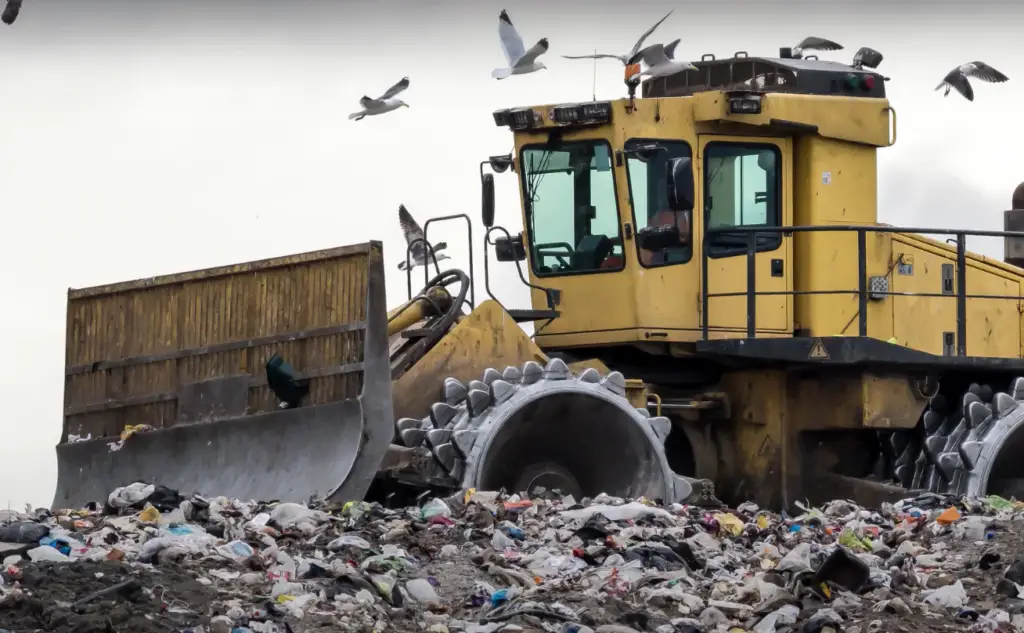
Aluminum is one of the most commonly used metals in manufacturing and construction, so recycling it reduces the need for new resources and energy-intensive processes. Thanks to its low weight and malleability, it is easier to transport than other metals, making it an ideal material for recycling.
Recycling aluminum helps reduce air pollution from smelting operations as well as water contamination from mining activities, helping to create a healthier environment for everyone. Aluminum’s high scrap value means that it can generate financial returns when recycled. It makes it an attractive option for businesses looking to reduce their environmental impact while increasing profits [5].
How to Recycle Your Scrap Metal for Money
Recycling your scrap metal can help you make extra money while also helping the environment.
Here are some tips on how to recycle your scrap metal for money [6]:Step 1: Examine common household items
Common household items that may contain metal parts include appliances, furniture, plumbing fixtures, tools, sporting goods, car parts, electronics (including circuit boards), batteries, and lighting fixtures. These items can be recycled, and you may get paid for them.
Step 2: Know the value of your metal
Knowing the value of your scrap metal helps you determine how much money you can make from it. Prices vary according to market conditions, but common prices include [7]:
- Ferrous (iron) metals like steel and cast iron at around $0.20 – 0.45/lb;
- Aluminum at around $0.72 – 0.91/lb;
- Copper at around $0.08 – 0.25/lb;
- Brass at around $0.75-1.50/lb;
- Lead at around 0.44/lb.
Once you know what kind of metal your item contains and its associated price per pound, you can calculate a rough estimate of how much money you could make from recycling it.
Step 3: Sell Your Scrap Metal to Recyclers
The easiest way to sell your scrap metal and get top dollar for it is to bring it to recyclers. They accept all types of ferrous and non-ferrous metals, including steel, copper, brass, aluminum, and lead.
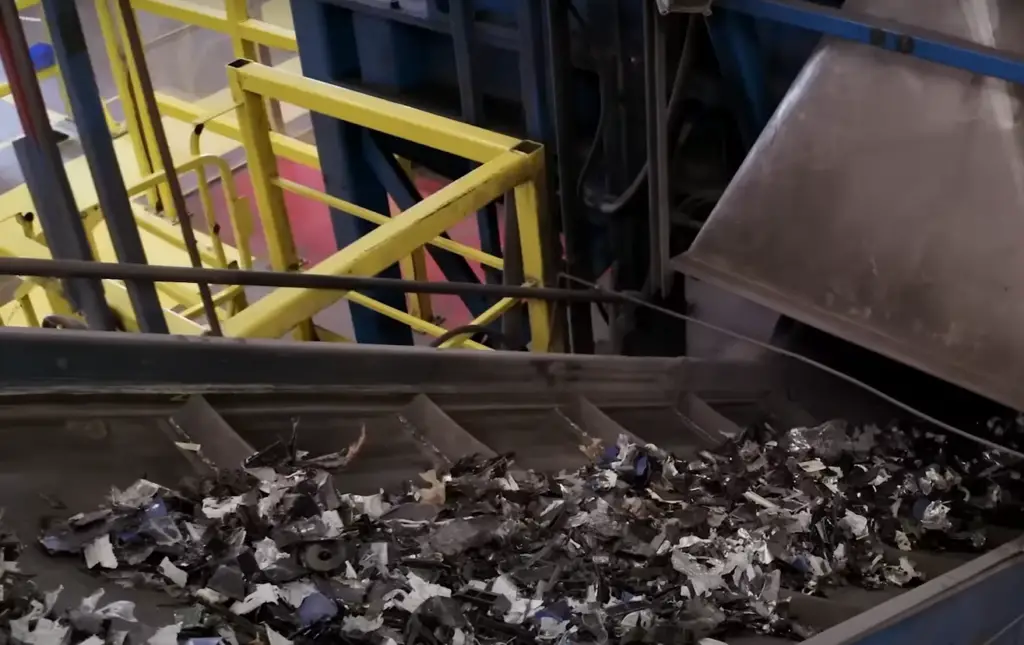
They will help you identify the type of metal in your items and provide an estimate of how much they can pay for them. Many of them offer competitive prices, fast turnaround times, and free pickup services, so you can trust them as your go-to source for selling scrap metal.
FAQs
Is metal more environmentally friendly than plastic?
Yes, it is. Metal is more environmentally friendly than plastic in many ways. Metal is a durable and recyclable material that can be reused time and again, thus reducing the need for new resources. Metals are less likely to leach chemicals into the environment as they decompose over time. They are far less likely than plastics to contribute to plastic pollution in our oceans.
Are all types of metals recyclable?
Most types of metals are recyclable, with some exceptions such as lead-acid batteries or radioactive materials. Aluminum, copper, steel, brass, and other common metals can easily be recycled at most scrap yards or recycling centers. Each type of metal has its unique characteristics which affect how it should be recycled. For more information, please refer to your local scrap yard or recycling center for further details.
How does recycling metals reduce pollution?
Recycling metals requires fewer resources than mining and producing new metals. It means that it produces less air and water pollution, reduces greenhouse gas emissions, and preserves natural resources. Recycling already-processed metal requires much less energy than producing new metal from raw materials.
It helps conserve energy and resources, which reduces the environmental impacts of human activities. Since metals are non-biodegradable, recycling them helps to reduce the amount of waste going into landfills. It prevents soil, air, and water contamination, which helps to keep the environment clean and healthy [8].
Why is recycling metals an economic benefit?
Recycling metals is an economic benefit because it saves money by reducing production costs. By reusing already-processed materials, metals can be produced using fewer resources, which reduces the time and energy required to process them.
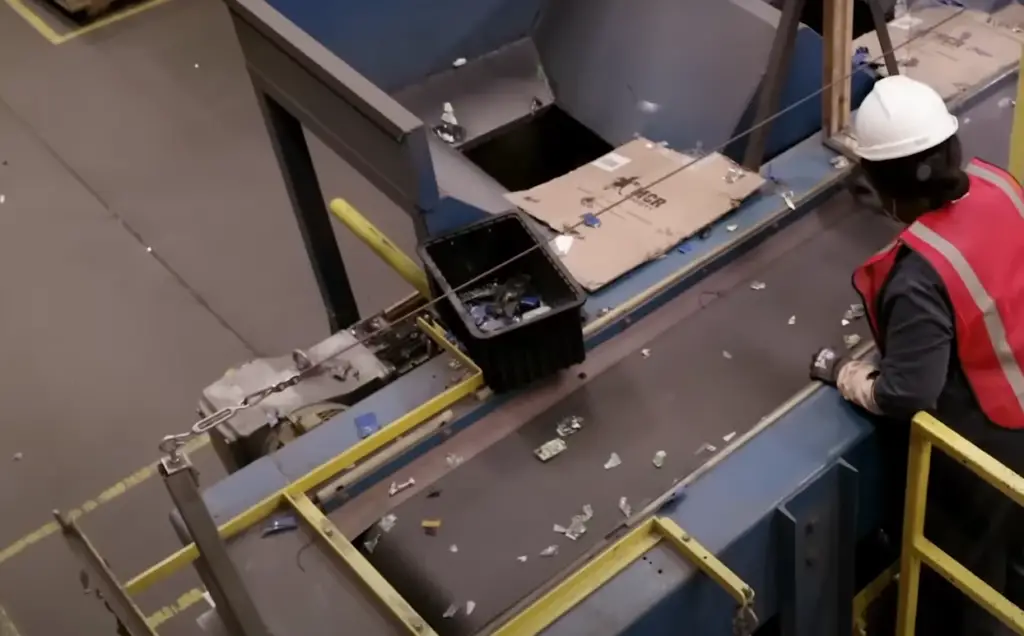
Recycling metals can generate revenue by selling scrap metals to dealers or processing them into new products. The money generated from recycling can then be used to invest in other businesses or projects that help to improve the local economy.
How does metal waste affect the environment?
Metal waste from mining, smelting, and manufacturing can harm the environment. Mining activities can create air and water pollution, contaminate soil, deplete natural resources, and release toxic materials into the atmosphere. Smelting metal releases hazardous chemicals that pollute the air and water supply.
Manufacturing processes generate large amounts of solid waste that often contain toxic materials, which can leach into the surrounding soil and contaminate groundwater. Metal waste in landfills takes up a large amount of space, which can result in significant soil erosion and other environmental damage. Recycling metal helps to reduce the amount of waste going into landfills and helps to preserve the environment and natural resources.
How are recycled metals used?
Recycled metals can be used in a variety of ways. Common uses for recycled metals include manufacturing new products, creating jewelry and artwork, and creating construction materials.
Recycling scrap metal helps to conserve natural resources by reducing the need to mine or smelt new sources of metal. Using recycled materials instead of new ones helps to reduce the amount of energy and resources required to produce metals and other products. It helps to conserve natural resources and reduce pollution.What happens after the metal is recycled?
After the metal has been recycled, it can be used in the manufacturing of new products or components. Depending on the type of metal, it may be melted down and reshaped into a new product or sold as scrap to another manufacturer who will use it for other applications. Recycled metals can also be donated to charities that use them for jewelry, artwork, or construction projects. Lastly, some metals may be reused in their existing forms, such as aluminum cans or copper pipes.
Can metal be 100% recycled?
Yes, it can. Metal can be 100% recycled. Some metals such as aluminum and steel can be recycled indefinitely. It means that they can be used to create new products over and over again without losing any of their original properties.
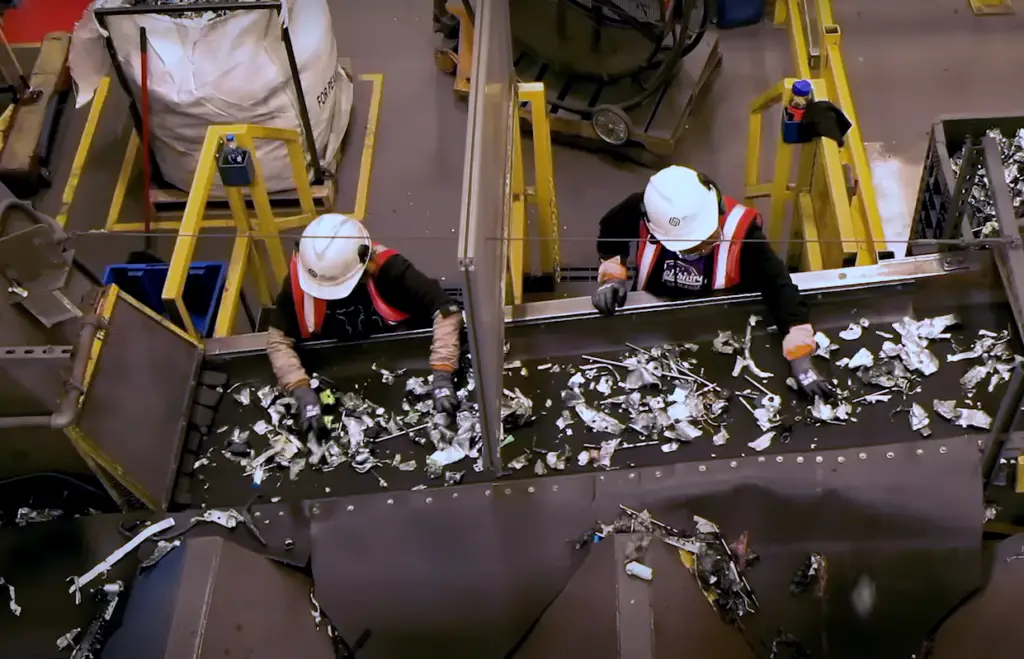
Other types of metals, such as copper or brass, need to be remelted to remove impurities before they can be recycled. However, even these metals can be recycled multiple times losing any of their original properties [9].
Is metal recyclable forever?
Yes, it is. Some metals such as aluminum and steel can be recycled indefinitely. This means that they can be used to create new products over and over again without losing any of their original properties. Other types of metals, such as copper or brass, need to be remelted to remove impurities before they can be recycled. However, even these metals can be recycled multiple times without losing any of their original properties.
Useful Video: Recycling Metals | Environmental Chemistry | Chemistry | FuseSchool
Conclusion
Recycling metals is an important step in reducing environmental impacts and preserving natural resources. It helps to reduce air and water pollution, conserve energy, generate revenue, slow landfill growth, and reduce greenhouse gas emissions. By recycling scrap metal instead of mining more, we can help protect the environment and give the metal a new life. Recycling metals not only benefits the environment, but it is also an economic benefit that helps to generate revenue and create jobs in the local economy. It’s a win-win situation for everyone.
References:
- https://www.slrecyclingltd.co.uk/why-is-it-important-to-recycle-metal/
- https://gpmetalsandspares.co.uk/blog/what-metals-can-be-recycled/
- https://transmetal.co.uk/what-types-of-metal-cant-you-recycle/
- https://www.cohenusa.com/blog/metal-matters-why-everyone-should-recycle-their-metal/
- https://www.cohenusa.com/blog/5-valuable-scrap-metals-to-recycle-today/
- https://cleanriver.com/blog3-easy-and-cost-efficient-ways-to-recycle-scrap-metal/
- https://www.scrapmetalbuyers.com/current-prices
- https://www.taronimetalrecycling.co.uk/how-recycling-your-metal-can-help-the-environment/
- https://recyclers.com.au/how-many-times-can-metal-be-recycled/

